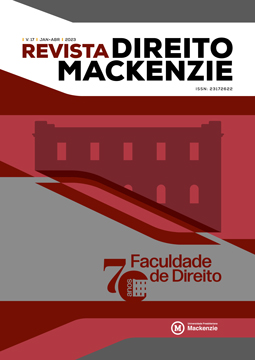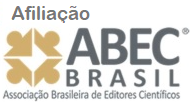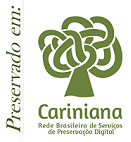THE UNIVERSITY PROFESSOR AND LAW TEACHING
QUALIFICATION, REQUIREMENTS AND ETHICAL-LEGAL ASPECTS IN THE CURRENT BRAZILIAN CONTEXT
Keywords:
educação, cidadania, ensino jurídicoAbstract
The purpose of this article is to discuss the university professor and legal teaching. To this end, it addresses qualification, requirements, as well as ethical and legal aspects in the current Brazilian context. This research is divided into four parts: in the first, in the context of the introduction, initial considerations will be made about Legal Education in Brazil; in the second part, considerations will be made about teacher training for legal education; in the third part, the role of the teacher in time will be discussed; and finally, in the fourth part, the concept of “felicidadania” (“happiness" + "citizenship"), elaborated by the teacher researcher Terezinha Azerêdo Rios, will be discussed. The conclusion is that building "felicidadania" in teaching is to struggle for the creation and constant improvement of conditions that make good quality educational work possible.
References
ARENDT, Hannah apud RIOS, Terezinha Azerêdo. Compreender e Ensinar. Por uma docência da melhor qualidade. 8 ed. São Paulo: Cortez, 2010.
BEHRENS, Maria Aparecida. Docência Universitária: formação ou improvisação? Revista Educação Santa Maria. v. 36, n. 3, p. 441-454, set./dez. 2011. Disponível em: <https://tinyurl.com/2258evrt>. Acesso em 23 fev. 2023.
CARVALHO, Nathalie de Paula. Uma análise do ensino jurídico no Brasil. Revista Jurídica da FA7, Fortaleza, v. 8, n. 1, p. 249-260, 2011. Disponível em: <https://tinyurl.com/2c449x9j>. Acesso em 15 fev. 2023.
CONSELHO FEDERAL DA ORDEM DOS ADVOGADOS DO BRASIL/FUNDAÇÃO GETÚLIUO VARGAS. Exame de Ordem em Números – 4ª Edição. Março de 2020. Disponível em: <https://tinyurl.com/3sr7z2vb>. Acesso em 15 fev. 2023.
CORTELLA, Mario Sergio. Educação, Escola e Docência. Novos Tempos, novas atitudes. São Paulo: Cortez, 2014.
DIAS SOBRINHO, José. Pós-graduação, escola de formação para o magistério superior. In: SERBINO, Raquel Volpato et al. Formação de professores. São Paulo: Editora da UNESP, 1998.
ESTRELA, Maria Tereza. A ética na docência universitária: entre o ideal e o real In: ALMEIDA, Filipe et al. Fraude e plágio na Universidade: a urgência de uma cultura de integridade no Ensino Superior. Coimbra: Imprensa da Universidade de Coimbra, 2016. Disponível em: <https://tinyurl.com/yd9uc4tp>. Acesso em 15 fev. 2023.
GALEANO, Eduardo; BORGES, José. Las palabras andantes. Madrid: Siglo XXI, 1994.
ISAIA, Silvia Maria de Aguiar. Desafios à docência universitária: pressupostos a considerar. In: RISTOFF, Dilvo; SEVEGNANI, Palmira. (orgs). Docência na educação superior. Coleção Educação Superior em Debate; v. 5. Brasília: INEP, 2006.
MELLO FILHO, Álvaro. Metodologia do ensino jurídico. Fortaleza: UFC, 1977.
MORIN, Edgar. Os sete saberes para a educação do Futuro. Trad. de Catarina Eleonora F. da Silva e Jeanne Sawaya; revisão técnica de Edgar de Assis Carvalho. 2 ed. São Paulo: Cortez; Brasília-DF:UNESCO, 2011.
PIMENTA, Selma Garrido. O estágio na formação de professores: unidade teoria e prática? 8. ed. São Paulo: Cortez, 2009.
RIOS, Terezinha Azerêdo. Compreender e Ensinar. Por uma docência da melhor qualidade. 8 ed. São Paulo: Cortez, 2010.
UNESCO. Educação, um tesouro a descobrir. Relatório para a UNESCO da Comissão Internacional para Educação para o século XXI. São Paulo: Cortez Editora, 1996.
Downloads
Published
Issue
Section
License
Copyright (c) 2023 Alvaro de Azevedo Gonzaga, Gisele Pereira Aguiar, Felipe Labruna

This work is licensed under a Creative Commons Attribution 4.0 International License.
The copyright of the articles published in Mackenzie Law Review belongs to the authors, who grant Mackenzie Presbyterian University the rights of publication of the contents, and the assignment takes effect upon submission of the article, or work in similar form, to the electronic system of institutional publications. The journal reserves the right to make normative, orthographic, and grammatical alterations to the originals, with the aim of maintaining the cultured standard of the language, respecting, however, the style of the authors. The content reported and the opinions expressed by the authors of the articles are their exclusive responsibility.











